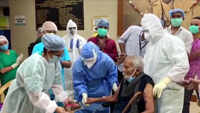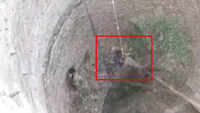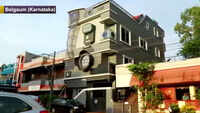
Thiruvananthapuram: With almost two-third of 51 identified Covid-19 clusters falling along the coastal region, the health department has charted out an integrated action plan for combating the situation. The plan is for those marginalized areas where there is lack of access to health care. The health department has found that the population in coastal areas, slums and tribal areas is usually impacted by structural issues and inequality in access to health care.
In the state, there are 80 coastal villages, 25 tribal villages and 15 divisions of slums. It has been decided that from each coastal village and slum 100 samples have to be collected for rapid antigen test. From each tribal village, 40 samples will be collected in a day.
It has been decided to set up antigen test at the primary health centre, nursing home, general practitioners or even in private hospitals. Mobile units also should carry out sample collection in these three areas where there are no health centres. The health department guideline says that all positive samples are to be treated as confirmed case. There is no need to reconfirm with any other tests. The plan has also urged to set up first-line treatment centres near to the area, seeking the cooperation of leaders of various sections of the society and public and to provide the best quarantine facilities.
At present, the triple lockdown has been implemented in coastal areas to contain the spread of the pandemic. The special action plan has been prepared to prevent further spread of the disease in coastal areas.
Currently, there are 51 clusters, including two large community clusters, in the state. The two major clusters are reported in Ponnani and Poonthura. Apart from the five clusters found in three coastal wards of Thiruvananthapuram, Chellanam area in Ernakulam and the coastal areas of Alappuzha too have reported cluster formation.
As per the cluster-specific action plan in these areas, contact tracing and active case finding are the two most important aspects. For this, intense testing has been suggested. Apart from this, reverse quarantine, information education communication, intersectoral coordination, involvement of community leaders, NGOs, etc., mobilisation of vehicles for transportation, ensure psychosocial support to people in containment zone, ensuring good quality quarantine and addressing other medical needs of people in cluster zone have been suggested.
If there is increase in the patient load, the district health administration has been asked to ensure that ICUs, ventilators and other facilities are available both in the government and the private sectors. The health department has been asked to seek the help of the disaster management and the police in case of a massive spread in the community.
In the state, there are 80 coastal villages, 25 tribal villages and 15 divisions of slums. It has been decided that from each coastal village and slum 100 samples have to be collected for rapid antigen test. From each tribal village, 40 samples will be collected in a day.
It has been decided to set up antigen test at the primary health centre, nursing home, general practitioners or even in private hospitals. Mobile units also should carry out sample collection in these three areas where there are no health centres. The health department guideline says that all positive samples are to be treated as confirmed case. There is no need to reconfirm with any other tests. The plan has also urged to set up first-line treatment centres near to the area, seeking the cooperation of leaders of various sections of the society and public and to provide the best quarantine facilities.
At present, the triple lockdown has been implemented in coastal areas to contain the spread of the pandemic. The special action plan has been prepared to prevent further spread of the disease in coastal areas.
Currently, there are 51 clusters, including two large community clusters, in the state. The two major clusters are reported in Ponnani and Poonthura. Apart from the five clusters found in three coastal wards of Thiruvananthapuram, Chellanam area in Ernakulam and the coastal areas of Alappuzha too have reported cluster formation.
As per the cluster-specific action plan in these areas, contact tracing and active case finding are the two most important aspects. For this, intense testing has been suggested. Apart from this, reverse quarantine, information education communication, intersectoral coordination, involvement of community leaders, NGOs, etc., mobilisation of vehicles for transportation, ensure psychosocial support to people in containment zone, ensuring good quality quarantine and addressing other medical needs of people in cluster zone have been suggested.
If there is increase in the patient load, the district health administration has been asked to ensure that ICUs, ventilators and other facilities are available both in the government and the private sectors. The health department has been asked to seek the help of the disaster management and the police in case of a massive spread in the community.

Coronavirus outbreak
Trending Topics
LATEST VIDEOS
City
 Watch: 101-year-old Mumbai man recovers from Covid-19, hospital staff celebrates his birthday
Watch: 101-year-old Mumbai man recovers from Covid-19, hospital staff celebrates his birthday  On cam: Drunk man falls into 100-feet-deep dilapidated well, rescued in Andhra Pradesh
On cam: Drunk man falls into 100-feet-deep dilapidated well, rescued in Andhra Pradesh  Love for photography: Man builds 3-storey camera-shaped house in Karnataka’s Belagavi
Love for photography: Man builds 3-storey camera-shaped house in Karnataka’s Belagavi  Kochi school teacher uses Augmented Reality Technology for conducting Lower Primary online classes
Kochi school teacher uses Augmented Reality Technology for conducting Lower Primary online classes
More from TOI
Navbharat Times
Featured Today in Travel
Quick Links
Kerala Coronavirus Helpline NumberHaryana Coronavirus Helpline NumberUP Coronavirus Helpline NumberBareilly NewsBhopal NewsCoronavirus in DelhiCoronavirus in HyderabadCoronavirus in IndiaCoronavirus symptomsCoronavirusRajasthan Coronavirus Helpline NumberAditya ThackerayShiv SenaFire in MumbaiAP Coronavirus Helpline NumberArvind KejriwalJammu Kashmir Coronavirus Helpline NumberSrinagar encounter
Get the app



